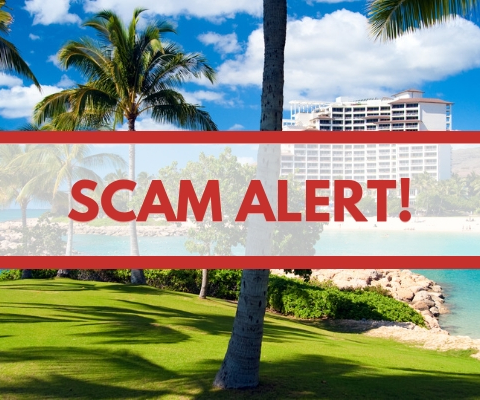Introduction: The timeshare industry, like any other industry, is not immune to scams and fraudulent activities. While timeshare ownership can offer a unique and enjoyable way to vacation, the complex nature of timeshare contracts, the lack of regulations, and the high-pressure sales tactics employed by some companies have created opportunities for scammers to take advantage of unsuspecting consumers. In this article, we will dig into the reasons why there are so many scams in the timeshare industry and provide insights on how to protect yourself from falling victim to these fraudulent activities.
Section 1: Lack of Industry Regulations The timeshare industry is not uniformly regulated across all jurisdictions, which has created loopholes and opportunities for scammers to operate. While some countries and states have implemented regulations to protect timeshare owners, many others lack comprehensive laws to govern the industry. This lack of regulation makes it easier for scammers to exploit consumers, especially those who are not familiar with the intricacies of timeshare contracts.
Solution: As a timeshare owner or a potential buyer, it’s crucial to familiarize yourself with the regulations in your specific jurisdiction. Research the laws and regulations related to timeshare ownership, sales, and resales in your area, and make sure any transactions or agreements you enter into comply with those regulations. Be wary of any company or individual that operates outside the legal framework or tries to pressure you into making hasty decisions.
Section 2: High-Pressure Sales Tactics High-pressure sales tactics are commonly used by some timeshare salespeople to push consumers into making impulsive decisions. These tactics may include aggressive sales pitches, limited-time offers, false promises of discounts or incentives, and pressure to sign contracts without thorough review or legal advice. Such tactics can create a sense of urgency and manipulate consumers into making uninformed decisions.
Solution: If you are attending a timeshare sales presentation, it’s important to be cautious and not succumb to high-pressure sales tactics. Take your time to review all the information provided, ask questions, and seek legal advice before signing any contracts. Avoid making impulsive decisions and be skeptical of any offers that seem too good to be true. Remember, you have the right to say no and walk away if you feel uncomfortable or pressured.
Section 3: Misleading and Deceptive Marketing Practices Some timeshare companies and resale companies may engage in misleading and deceptive marketing practices to lure in unsuspecting consumers. This may include false advertising, misrepresentation of the features or benefits of timeshare ownership, omission of important information, and concealment of hidden fees or costs. Consumers may be enticed by glossy brochures, attractive websites, or misleading claims, only to realize later that they have been deceived.
Solution: When considering a timeshare purchase or resale, it’s important to do your due diligence and thoroughly research the company and the property. Scrutinize all marketing materials, including brochures, websites, and advertisements, and verify the information provided. Ask for written documentation of all promises, terms, and conditions. Read and understand all contracts and agreements, and seek legal advice if needed. Be wary of any company or individual that avoids providing clear and transparent information or uses high-pressure tactics to rush you into a decision.
Section 4: Upfront Fees and Hidden Costs Another common scam in the timeshare industry involves upfront fees and hidden costs. Some scammers may request upfront fees for services such as timeshare resales, advertising, or maintenance fee relief, but fail to deliver on their promises. Others may conceal hidden costs, such as maintenance fees, property taxes, assessments, or special assessments, which can add up over time and become a financial burden for times.
Solution: It’s essential to be cautious when dealing with any company that requests upfront fees or fails to disclose all costs associated with timeshare ownership. Do thorough research on the company and its track record, read reviews and testimonials from other consumers, and check with relevant consumer protection agencies for any complaints or warnings. Be wary of any company that promises to sell or rent your timeshare quickly or offers to relieve you of maintenance fees without proper documentation or guarantees. Always carefully review contracts and agreements, and seek legal advice before making any payments or signing any agreements.
Section 5: Lack of Transparency in Resale Market The resale market for timeshares can also be a breeding ground for scams. Some resale companies may promise to sell your timeshare at a high price but fail to deliver, leaving owners with lost time and money. Lack of transparency in the resale market, including the absence of standardized pricing, can make it difficult for owners to accurately value their timeshares and understand the market dynamics, making them vulnerable to scams.
Solution: If you are considering selling your timeshare, it’s important to research and understand the resale market. Get multiple quotes from reputable resale companies, and compare them to determine a fair market value for your timeshare. Be cautious of any company that promises to sell your timeshare at an unrealistic or inflated price, and avoid paying upfront fees. Work with established and reputable resale companies that have a proven track record and provide clear and transparent information about their services, fees, and timeline.
Section 6: Lack of Education and Awareness Another reason why scams persist in the timeshare industry is the lack of education and awareness among consumers. Many people are not fully informed about the complexities of timeshare ownership, including the long-term financial obligations, maintenance fees, and limitations associated with timeshare contracts. This lack of awareness makes consumers more susceptible to scams and fraudulent activities.
Solution: As a consumer, it’s important to educate yourself about timeshare ownership before making any decisions. Familiarize yourself with the terms and conditions of timeshare contracts, including the annual maintenance fees, special assessments, and limitations on usage. Understand the potential risks and drawbacks of timeshare ownership, and carefully weigh the pros and cons. Seek advice from reputable sources, such as consumer protection agencies, legal professionals, or independent timeshare advocacy groups, before making any commitments.
Conclusion: In conclusion, the timeshare industry has unfortunately become a breeding ground for scams and fraudulent activities due to various reasons, including the lack of industry regulations, high-pressure sales tactics, misleading marketing practices, upfront fees and hidden costs, lack of transparency in the resale market, and the lack of education and awareness among consumers. It’s crucial for timeshare owners and potential buyers to be vigilant, do thorough research, and seek legal advice when dealing with any timeshare-related transactions. By being informed and cautious, you can protect yourself from falling victim to scams and enjoy a safe and fulfilling timeshare ownership experience.




